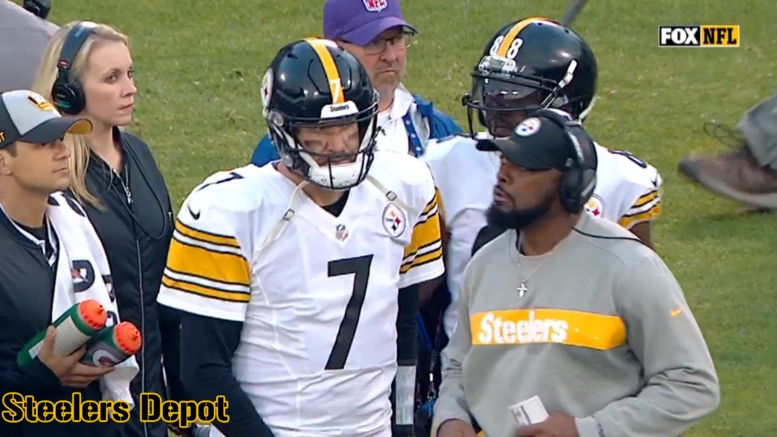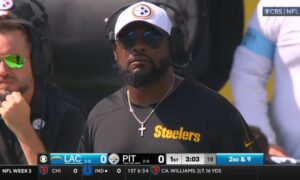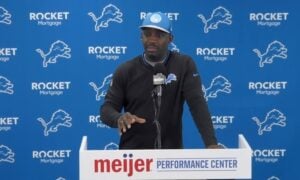I watch as little sports news as I possibly can, but even with as little as I expose myself to, I have seen a lot of people say a lot of stupid things over the years. One of the stupidest things I’ve ever heard was on First Things First yesterday when multiple panelists suggested that disciplining quarterback Ben Roethlisberger was above Mike Tomlin’s pay grade.
“Mike Tomlin pretends to be tough in the press conference, but when it comes to running the football team, he’s not. Bad leadership has come from the head coach, and it’s trickled down to the locker room. I don’t think we should make excuses for him.” — @criscarter80 pic.twitter.com/KdBQ00oFDS
— First Things First (@FTFonFS1) March 15, 2019
There are plenty of things for which the Steelers as an organization and Tomlin as a coach can be rightfully criticized about the way that things have unfolded over the course of the past year—or even recent years, more broadly speaking. But never at any point has there been an indication that Tomlin’s decisions and authority are not autonomous.
That’s not to say that there might not have been some encouragement or nudging over the years, but the suggestion that Tomlin does not have the authority to check Roethlisberger’s behavior if he felt it was out of line is seriously absurd.
And it’s no surprise that the catalyst for that conversation on the panel was the remark made by General Manager Kevin Colbert in which he said that Roethlisberger was the adult on the team and that, essentially, he was free to criticize anybody who needed to be criticized, including Colbert himself.
But to say that one is free to offer criticism in no way implies that they person is free from criticism himself, and in fact Roethlisberger, arguably short of Tomlin and Colbert, have spent more time pointing the finger at themselves when things go wrong than have anybody else within the entire organization.
The more likely—far more likely—explanation is that Tomlin polices his locker room in the manner that he feels is appropriate, and his decisions should be judged based on that. Not on the notion, as one of the panelists suggested, that he was some sort of captive when it comes to Roethlisberger, who is an untouchable, free from criticism.
It’s certainly not as though Tomlin has not said frequently in games in which Roethlisberger struggled that the play at the quarterback position needs to be better. Outside of his play on the field, however, I can hardly imagine what would warrant any kind of discipline.
If we’re talking about his radio interviews, then I fail to come up with an explanation for why Tomlin would have a problem with it, yet Art Rooney II would not, and that the owner would prevent Tomlin from shutting his show down if he believed it was a problem.
The bottom line is this: this is Tomlin’s team. He has more control over what goes on from top to bottom than almost any other coach in the league. So whatever happens, he’s the one who answers for it. Rooney, then, answers for his role in allowing Tomlin the reins. The two of them and Colbert very frequently—that is, virtually daily—collaborate on important matters as it is, but in the locker room, Tomlin is the man.








